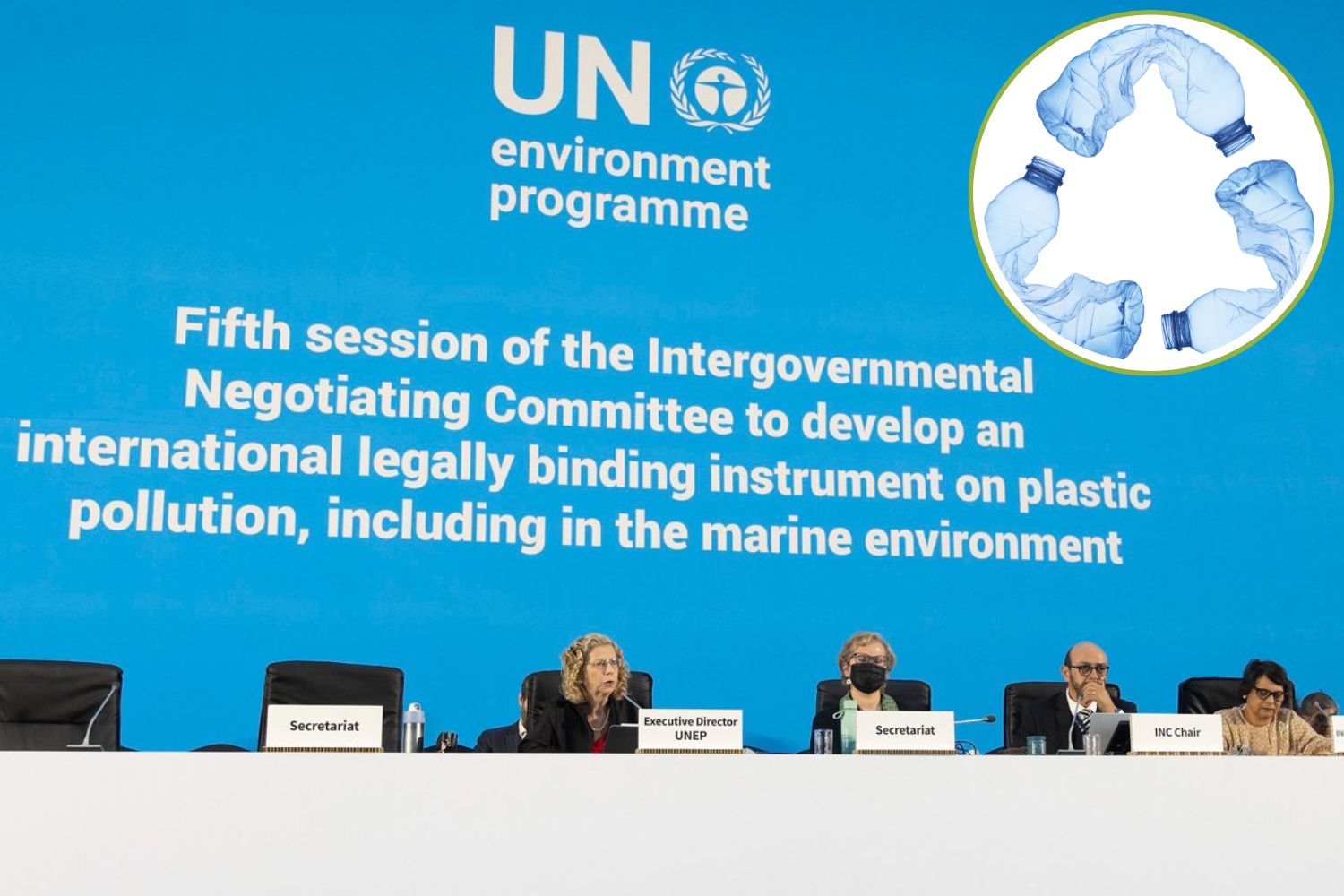Despite the urgency for global action against plastic pollution, UN negotiations for an international treaty have failed in Busan. However, a new "Text from the President" and a follow-up session in 2025 offer a new opportunity to reach an agreement

@X
The UN negotiations for a global plastic treaty have concluded without a deal in Busan, South Korea. Deep divisions among attending countries have thwarted efforts to reach any kind of agreement on coordinated actions needed to curb plastic pollution in an increasingly urgent crisis.
The ambition was high: the first legally binding treaty that was supposed to manage the production-to-disposal lifecycle of plastic in a sustainable manner. Yet, a divide between “high ambition” countries, calling for the reduction of plastic production and the phasing out of harmful chemicals, and “like-minded” nations that would rather stay with waste management, turned out to be insurmountable.
“We should be outraged,” said Sian Sutherland, the co-founder of A Plastic Planet, commenting on the failure of the talks. “Plastic has an immeasurable impact on the biodiversity crisis, it is the engine of excessive consumption, and it represents a severe human health issue.”
Global plastic production reached an all-time high in 2019 of over 1 billion pounds, or a total of 460 million tons, per year. According to the OECD, without decisive interventions, this could increase further by 70% up until 2040, causing extremely adverse impacts on the natural environment and human health. Every year, millions of tones of produced plastic are stockpiled in landfills, incinerated, or worse, dispersed into the environment.
Less than 10% of the plastic produced is recycled. This is because the recycling process is still considered too complex and costly, and often the quality of recycled plastic is inferior to virgin plastic. Besides, many types of plastic are not recyclable and end up polluting the environment.
As we all may know, plastic waste is severely destructive to ecosystems. It is estimated that more than 100,000 marine animals die annually due to ingesting plastic or getting caught in it. Plastic takes hundreds of years to decompose; during this process, it fragments into microplastics that contaminate soil, water, and air.
While the blame was being passed on by the delegates, the world watched helplessly as history slipped away. Some countries, like India, Saudi Arabia, and Iran, opposed even the possibility of voting on proposals, hanging on to the consensus principle. The rigidity did not allow for differences to be overcome, leading to a “watered-down” and ineffective draft treaty.
“We want a treaty that can solve the problem,” said Sam Adu-Kumi, lead negotiator for Ghana. “Otherwise, we will do without it and fight again another time.” His words are a warning to all countries that have prioritized economic interests over the health of the planet.
The lack of transparency during the negotiations further worsened the situation. The environmental groups, indigenous leaders, and scientists felt muzzled, denied the chance to contribute meaningfully to the writing of the treaty. As noted in a tweet by Inger Andersen, the Executive Director of the UN Environment Programme: “Civil society, communities, and scientists must have a seat at the table in multilateral environmental negotiations. This is crucial to ensure that #plastic does not further pollute our planet.”
Camila Zepeda, leader of the Mexican delegation, underlined that a multilateral approach is required to solve the plastic crisis: “Mexico reiterates its commitment to an ambitious treaty that covers the full life cycle of plastics, with a special emphasis on prevention and reduction of production and consumption.”
On the last day of negotiations at #INC5 🇲🇽 is pushing for a #PlasticsTreaty that contains a clear, legally binding obligation to phase out the most harmful plastic products and chemicals of concern in plastics. Without it, the instrument will fail to deliver‼️ pic.twitter.com/V8VY67SvFg
— Camila Zepeda (@CamilaZepedaL) December 1, 2024
“The voices of affected communities, science and health leaders are silent in the process, and largely this is why the negotiation process is failing. Busan demonstrated that the process is broken and is just limping along,” said Bjorn Beeler, international coordinator for the International Pollutants Elimination Network.
Despite the failure of the talks, a faint hope remains. Countries have agreed on a “President’s Text” (you can read it here) that will serve as the basis for negotiations in a resumed session in 2025.
Ambassador Luis Vayas Valdivieso, President of INC-5, urged all delegations to “continue charting paths, building bridges, and engaging in dialogue.”
The road to a global plastic treaty is still long and tortuous, but at least the problem is now well recognized, and public pressure may push world leaders to act with greater determination.
